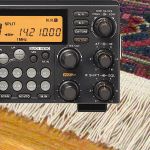 Hello, LHS listeners! We are back again with another exciting installment of our show. In this episode we discuss logging, general purpose and contesting, a new single-board computer project, retro gaming, a pop-up terminal for Linux, digital voice, software defined radio and much more. Thanks for listening, and remember: Get on the air!
Hello, LHS listeners! We are back again with another exciting installment of our show. In this episode we discuss logging, general purpose and contesting, a new single-board computer project, retro gaming, a pop-up terminal for Linux, digital voice, software defined radio and much more. Thanks for listening, and remember: Get on the air!
73 de The LHS Guys
Podcast: Play in new window | Download